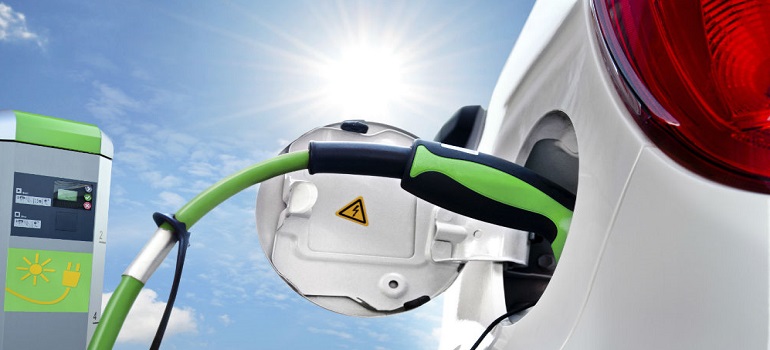The Chief Minister of Tamil Nadu, M.K. Stalin, has released the state’s Electric Vehicles Policy 2023, which includes a range of features aimed at promoting e-mobility solutions in the state. The policy promotes the development of Chennai, Coimbatore, Tiruchirappalli, Madurai, Salem, and Tirunelveli as pilot cities for the implementation of e-mobility solutions.
The policy defines electric vehicles (EVs) as battery electric vehicles (BEV), plug-in electric vehicles (PEV), plug-in hybrid electric vehicles (PHEV), and strong hybrid electric vehicles (SHEV). Tamil Nadu has signed MoUs with an investment interest of nearly Rs 24,000 crore and employment potential of 48,000 jobs in the EV value chain.
Under the new policy, EV projects will be provided a range of incentives. EV projects will be provided with 100% exemption on electricity tax for five years on power purchased from the Tamil Nadu Generation & Distribution Corporation Limited (TANGEDCO) or generated and consumed from captive sources. The policy also offers employment incentives in the form of reimbursement of the employer’s contribution to the EPF, up to a maximum of Rs 48,000 per employee, for all new jobs created during the policy period.
The policy provides financial support to companies that wish to transition/diversify into EV manufacturing for upskilling their workforce. The government has also decided to waive road tax, registration charges, and permit fees for EVs. The policy also includes amendments to building and construction laws to ensure that charging infrastructure is integrated into the planning stage for all new constructions and apartments in cities.
Further, based on the battery capacity and the vehicle type, the Tamil Nadu government will offer incentives for commercial vehicles ranging between Rs 5,000 to Rs 10 lakh. The state government will also revise the power tariff for public charging stations and offer incentives to charging and battery swapping stations. The government will incentivize converting internal combustion engine-powered commercial vehicles to EVs.
The policy’s primary objective is to encourage the adoption of EVs in the state, reduce carbon emissions, and promote sustainable development. With these incentives, Tamil Nadu is set to become a hub for EV manufacturing, which will contribute to the state’s economic growth and generate employment opportunities.
INDUSTRY VIEWS
“A progressive initiative by the esteemed State Govt’s policymakers, encompassing all stakeholders in the EV Eco-System. The policy framework will go a long way in enabling the transition to electrification of the various mobility platforms across B2B and B2C segments; a boost for OEMs, Components’ manufacturers/ ancillaries, fleet operators and customers, etc.. to wholeheartedly invest and adopt sustainable, efficient mobility. We see this as a comprehensive Green Sustainable Climate conscious approach aimed at growth-focused bright future for the Electric Vehicle Segment.” said Rahil Gupta, Co-Founder & CTO of HOP Electric Mobility.
V G Anil, Head of Operations, ARENQ said “In line with the global pursuit to reduce carbon emissions, India also encouraged EV adoption throughout the nation to focus on sustainable and clean mobility solutions with subsidies and supportive regulations. Following the path, various states in the country are coming forward to introduce their own policies for the EV sector. The latest EV policy by Tamil Nadu offers various incentives which will put an order and support local players to uplift the EV sector in the state. It will also attract players from other states to consider Tamil Nadu as their next destination for businesses in the EV sector.”

